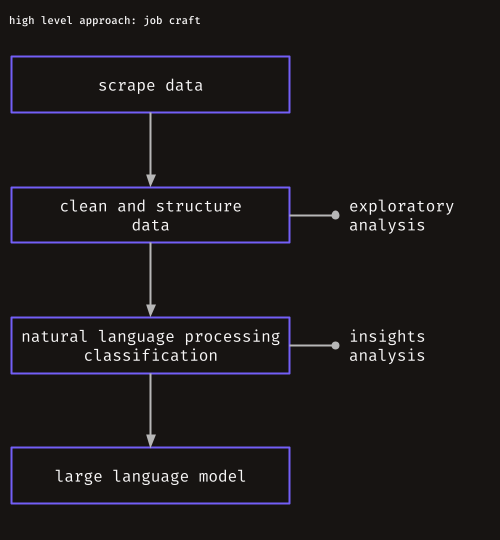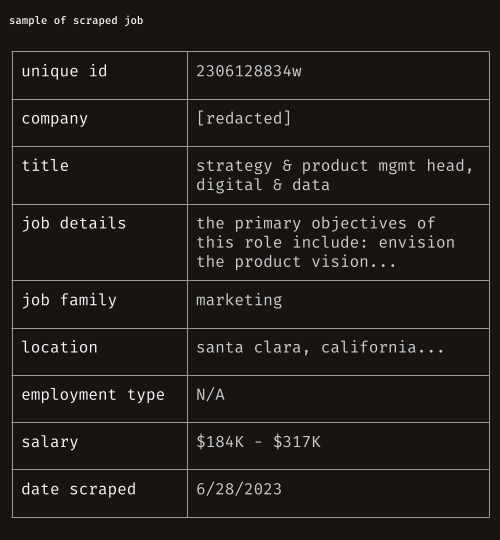❯ Job as Craft
Category: Career
Series: Job Craft
My grandfather was a carpenter. He came home from Vietnam in '66 and, thirty days later, began a career that lasted sixty years. His started out working for others before eventually opening his own shop. That shop is closed now. So far, that hasn't stopped him from continuing to build, create, and fix. Somewhere along the way, Grandpa taught me to appreciate exceptional work: the work of a craftsman.
Fast forward to this year and the current narrative would say craftsmanship is done. Knowledge work doesn't have the same opportunity for craft as the trades. It's no longer attainable, a relic of the past.
A string of chance encounters changed that for me: Apprenticeship Patterns, then Code Kata, and lastly Marc on Expertise. I have only a hobbyist's interest in software, but these sources flipped a switch for me: the narrative of bygone craftsmanship doesn't have to be true. It's here. We have to find (and define) it.
THE JOB CHANGES THE PERSON
I found my demeanor shifted when I was responsible for Research and Analytics versus Marketing. From intellectual consultant to nimble decision-maker, it shaped how I showed up at work and at home. What had once been inventing new board games became creating the perfect Pina Colada for friends (an endless journey). I have always valued intellectual pursuits, but find myself with a greater appreciation for aesthetics now. It didn't change me completely—but enough to matter.
If we spend decades in a career, it's worth considering how jobs might influence who we become.
ELEVATOR PITCH
The starting point is scraping job posting data from F100 companies and will end with a personal ChatGPT. The outcome is using data to understand a job's craft. What do we mean by craft here? Beyond the surface, what differentiates one job from another, their foundational and emerging skills, distinct responsibilities, general behaviors, and values. In the process, I'll end up with other beneficial information (more on that below).
That's a lot of work for potentially intuitive knowledge. For this project, I'm interested in the journey and learnings instead of the destination.
METHODOLOGY & TECHNICAL BITS
The overall plan is to get the data, clean the data, use NLP to automate classification and categorization, and build JobCraftGPT. Along the way, I'll run an analysis or two for insights.

June was spent learning and using Scrapy to get data. A few companies have been scraped with a crawler script running identical-but-individual-instance spiders. The next step being to create a custom Spider class for reusability and consistency across these spiders. In parallel, I'm adding reference tables (company data, job hierarchy, COL and inflation) that will enrich the data and insights.

The technical approach on 'scrape data' is clear. Less clear is the approach, architecture, and implementation for the next three steps. I'm learning as I go—perhaps a poignant sentence to end on.
Snapshot:
I can look back and see all that you given to me:
Piggy back rides down the steps at six.
My first leather wallet at ten.
The rusted Chevy at sixteen.
A nightstand at eighteen.
The cedar chest at twenty-five.
Our dining room table at twenty-seven.
Cindy's hutch at twenty-eight.
Your old hunting bow at thirty-two.
How could someone put into words this kind of love? The physical gifts are just a fraction. You've been with me since the beginning, grandpa. You've shepherded me through every stage of life. From boy to man, you've been there. I'm not just thankful, I am better for it.
Striving for better,
Justin Pichichero